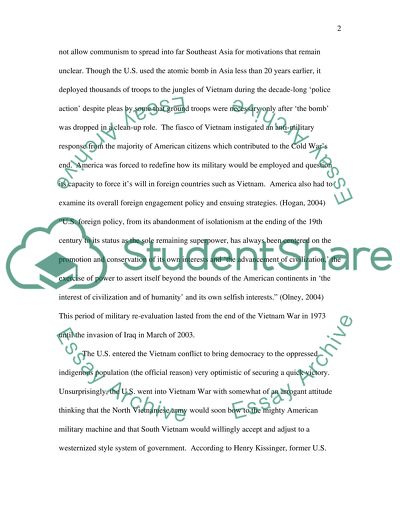Cite this document
(“Vietnam War Term Paper Example | Topics and Well Written Essays - 2000 words”, n.d.)
Retrieved from https://studentshare.org/religion-and-theology/1429524-vietnam-war
Retrieved from https://studentshare.org/religion-and-theology/1429524-vietnam-war
(Vietnam War Term Paper Example | Topics and Well Written Essays - 2000 Words)
https://studentshare.org/religion-and-theology/1429524-vietnam-war.
https://studentshare.org/religion-and-theology/1429524-vietnam-war.
“Vietnam War Term Paper Example | Topics and Well Written Essays - 2000 Words”, n.d. https://studentshare.org/religion-and-theology/1429524-vietnam-war.


